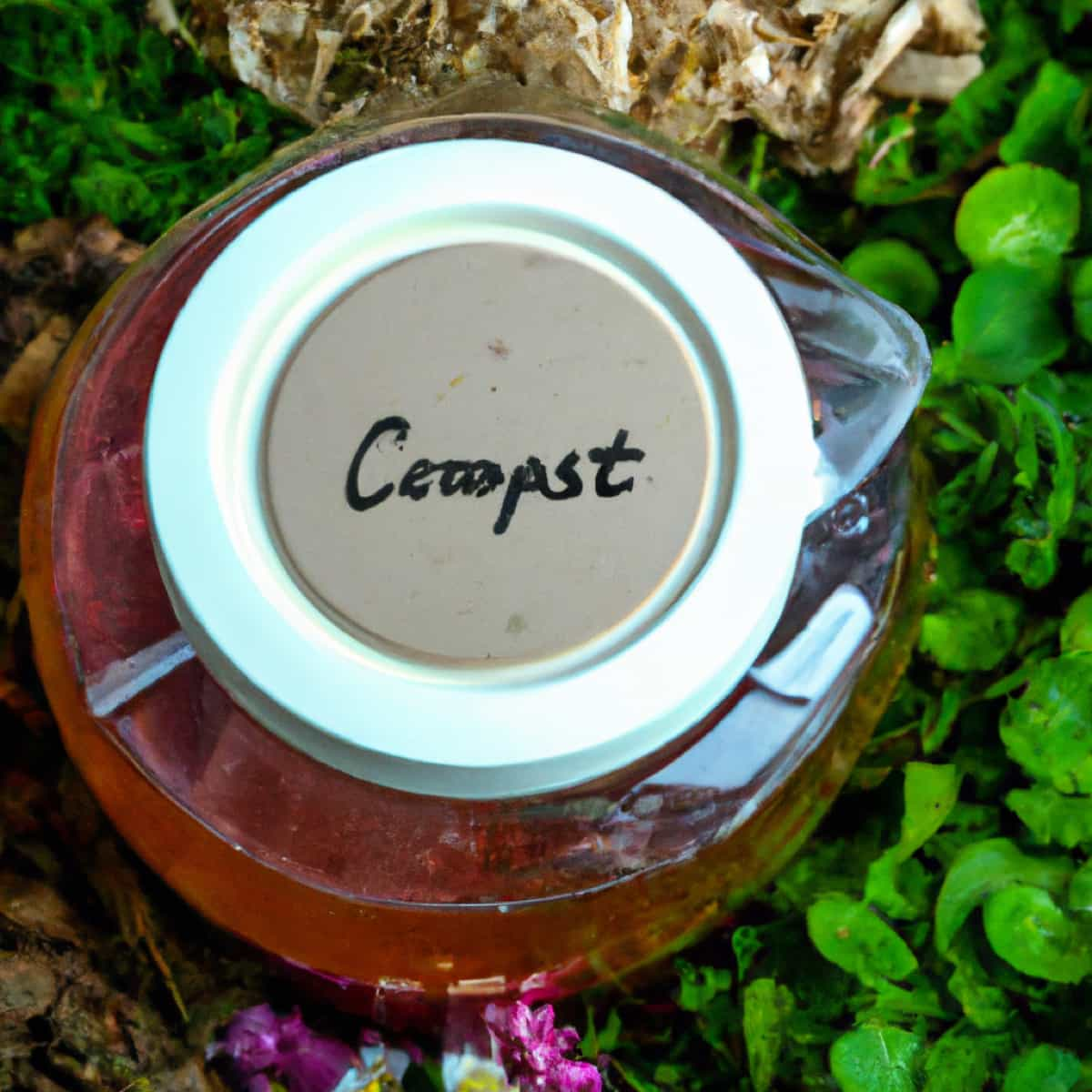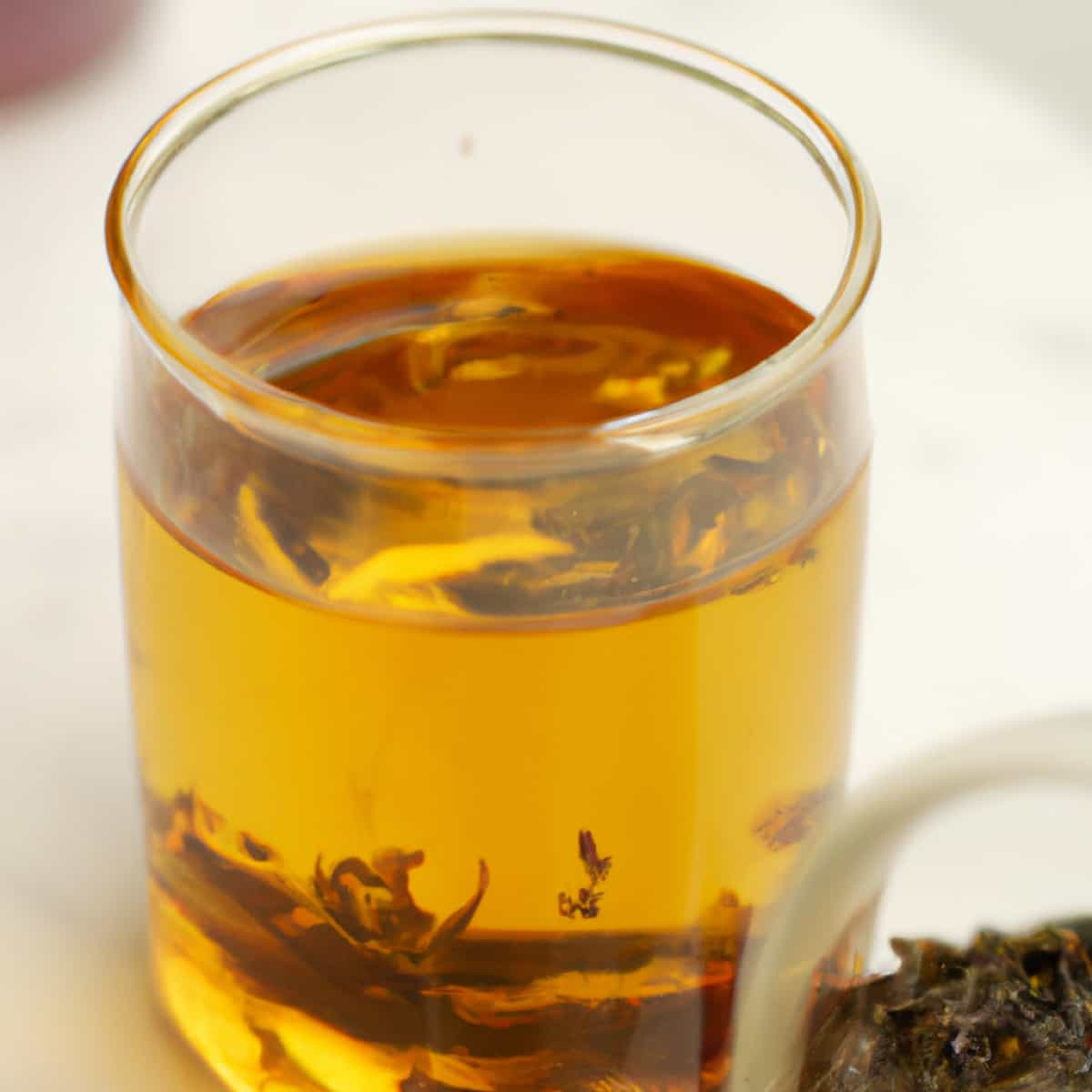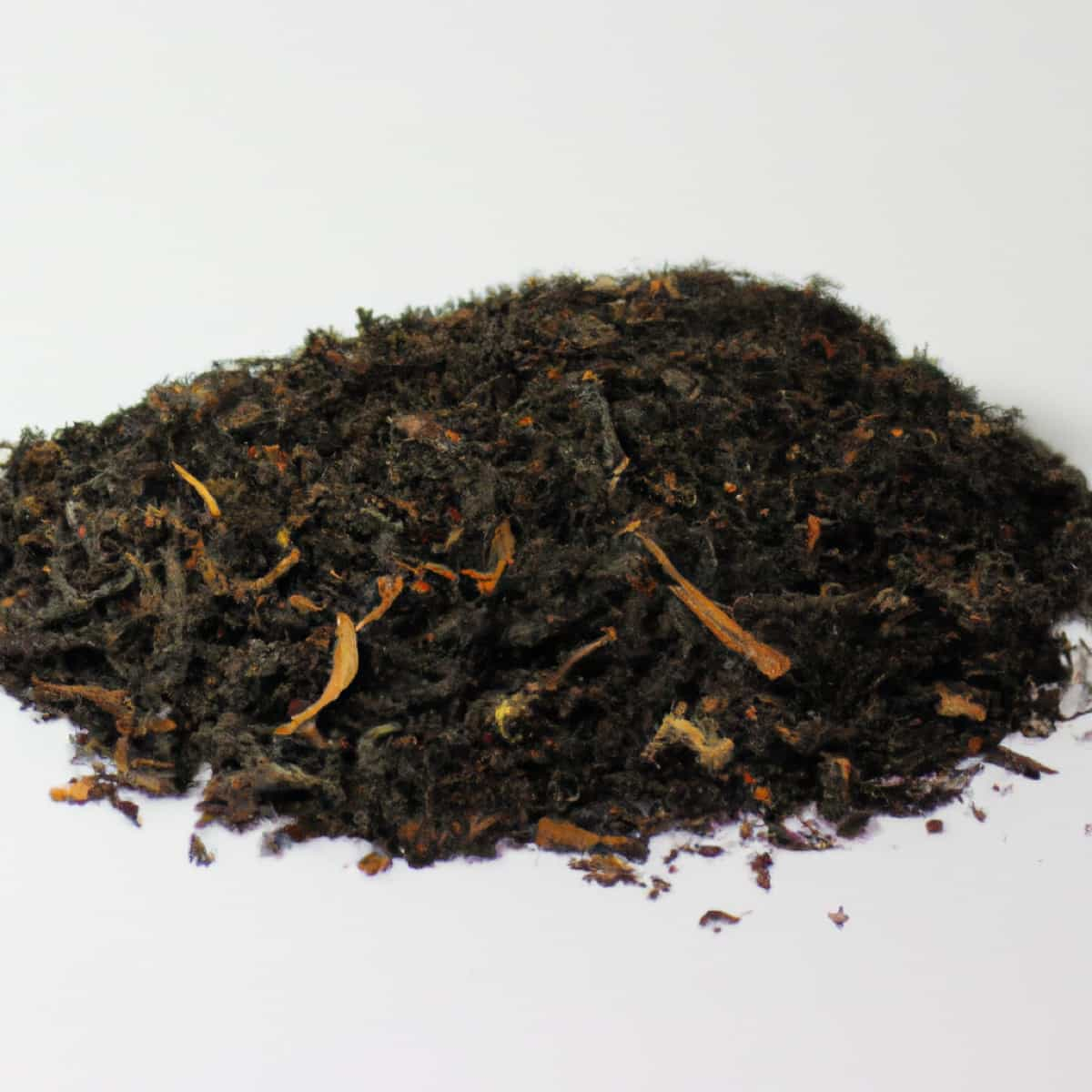Making your compost tea is easy and cost-effective. The resulting compost tea becomes alive with nutrients and microbial activity, ready to be absorbed by your plants’ roots. It’s like giving them a nutrient-packed energy drink that boosts their growth, improves their overall health, enhances disease resistance, and encourages robust blooms or bountiful harvests.

Homemade DIY Compost Tea Soil Fertilizer
What is Compost Tea?
It’s the liquid version of the nutrient-rich compost you’ve diligently created in your backyard. But instead of spreading it directly on the soil, brew it into a magical solution that nourishes and protects your plants.
What Are the Ingredients Needed to Make Compost Tea?
| Ingredients | Quantity |
| Non-chlorinated water | Use rainwater, or tap water to sit for over 24 hours |
| Worm castings or compost | 1-2 cups of inoculant |
| Bacteria or fungi | ¼ – ½ cup of food source |
| Bucket size | 5-gallon |
Recipe/Prepare Compost Tea at Home
- Fill the bucket with water, leaving some space at the top. Add in the inoculant and food source, stirring gently to combine. Cover the bucket loosely with a breathable cloth or lid that allows air circulation.
- Let it steep for about 24-48 hours. During this time, beneficial microorganisms multiply and release nutrients into the water solution.
- After steeping, strain out any solids using cheesecloth or fine mesh. The resulting liquid is your homemade compost tea. If desired, dilute it with additional non-chlorinated water before applying it to your plants’ soil.
- Remember to store any excess tea in an airtight container away from direct sunlight. It can be stored for up to two weeks before its potency diminishes.
How Does Compost Tea Work?
- Compost tea contains a rich blend of nutrients and beneficial microorganisms. These microscopic organisms go to work when applied to the soil or sprayed on plant foliage. They help break down organic matter, release essential nutrients, and improve soil health.
- The microorganisms in compost tea include bacteria, fungi, protozoa, and nematodes. These tiny creatures play crucial roles in nutrient cycling and disease suppression. Bacteria decompose organic matter into simpler forms that plants can absorb. Fungi form symbiotic relationships with plant roots, enhancing nutrient uptake.
- When you apply compost tea to your garden, you’re essentially introducing an army of beneficial microbes that will enhance the biological activity in your soil. This increased microbial activity improves nutrient availability and helps fight off harmful pathogens.
- Compost tea enhances soil structure by improving water retention capabilities and increasing air circulation within the soil profile by directly providing essential nutrients to plants’ roots or leaves when sprayed as foliar.
What Pests and Diseases Can Compost Tea Control?
- Compost tea is packed with beneficial microorganisms to combat various pests and diseases in your garden.
- One of the key benefits of compost tea is its ability to suppress harmful pathogens. The diverse community of microorganisms in compost tea, such as bacteria, fungi, and protozoa, work together to outcompete and suppress disease-causing organisms. This means fewer plant infections and healthier plants overall.
- Compost tea also acts as a natural insect repellent. Some studies have shown that applying compost tea to plants can deter certain pests, like aphids or mites, from infesting your garden.
- Additionally, using compost tea regularly can improve your plants’ overall health and vitality. Stronger plants have better defenses against pests and diseases, making them less susceptible to attack in the first place.
How to Store Compost Tea?
- Use airtight containers: After brewing your compost tea, transfer it into clean, airtight containers such as glass jars or plastic buckets with tight-fitting lids. This will help preserve the beneficial microorganisms and nutrients in the tea.
- Store in a cool, dark place: Compost tea should be stored away from direct sunlight and extreme temperatures. A cool basement or garage can serve as an ideal storage location.
- Label your containers: To keep track of freshness, it’s important to label each container with the date brewed and the ingredients used. This way, you can rotate your supply of compost tea and ensure you’re using it within a reasonable timeframe.
- Avoid prolonged storage: Compost tea is most effective when fresh within 24-48 hours of brewing. While it may remain viable for up to one week if kept refrigerated, its potency gradually decreases.
In case you missed it: From pH Levels to Composting: How to Prepare the Best Soil for Your Flower Garden

How Often Should You Use Compost Tea for Your Plants?
- The optimum time to apply compost tea is in the morning when temperatures are cooler, and the soil can fully absorb the nutrients. This lets your plants start their day with a nourishing boost.
- It depends on several factors, such as the type of plant, its growth stage, and environmental conditions. Generally, compost tea can be applied every 14 to 30 days during the growing season.
- While compost tea benefits plants, too much of a good thing can sometimes have negative effects. Applying it too frequently can lead to nutrient imbalances or overstimulation of microbial activity.
Best Time to Apply and How Much Compost Tea Should You Use for Your Garden Plants
To maximize the benefits, it’s best to apply compost tea on a weekly to monthly basis, depending on the needs of your plants. By regularly incorporating this organic fertilizer into your routine, you can provide a steady supply of nutrients and beneficial microorganisms. Apply compost tea two weeks before your plant’s bud for optimal results.
This allows them to absorb the nutrients and establish a strong foundation for healthy growth. The recommended application rate is 5 gallons of compost tea per acre for every five feet in foliage height. While this is considered the lowest rate, you can adjust accordingly based on the size and needs of your garden.
How Long Does It Take for Compost Tea to Work for Your Plants?
Depends on several factors, including the health of your plants, the quality of your compost tea, and the environmental conditions. Generally, you can expect results within 12-48 hours after applying compost tea.
Benefits of Plants of Using Compost Tea in the Home Garden
- Increased Nutrient Availability: Compost tea provides plants with a rich source of nutrients readily available for absorption. This helps to promote healthy growth and development, resulting in stronger, more vibrant plants.
- Enhanced Soil Health: When compost tea is applied to the soil, it introduces beneficial microorganisms that help improve soil structure and fertility. These microorganisms break down organic matter and release essential nutrients into the soil, creating a thriving ecosystem for plant roots.
- Disease Resistance: The beneficial bacteria and fungi present in compost tea can help suppress harmful pathogens in the soil, reducing the risk of plant diseases. This natural protection promotes stronger immune responses and improves their resistance to pests and diseases.
- Improved Water Retention: Compost tea helps enhance water-holding capacity in the soil by improving its structure and increasing organic matter content. This means less water is wasted through evaporation or runoff, leading to more efficient watering practices.
- Environmental Sustainability: Using homemade compost tea as a natural fertilizer alternative reduces reliance on synthetic chemicals that can harm your plants. Compost tea is eco-friendly, renewable, and supports sustainable gardening practices.
Safety Precautions When Using Compost Tea
- Proper Handling: Always wear gloves and protective eyewear when handling compost tea. This will help prevent any potential irritation or allergic reactions.
- Dilution: It is crucial to dilute the compost tea before applying it to your plants. Concentrated compost tea can harm your plants and cause damage instead of benefits.
- Avoid Overuse: Like any other fertilizer, using too much compost tea can negatively affect your plants. Follow the recommended application rates and avoid overusing them.
- Hygiene Practices: After working with compost or applying compost tea, wash your hands thoroughly with soap and water. This will help prevent the spread of any potentially harmful bacteria.
- Store Safely: If you’re storing leftover compost tea, store it in a dark place away from direct sunlight and extreme temperatures.
In case you missed it: Best Soil Composition for Potato Cultivation

Conclusion
Compost tea is known for its ability to provide immediate benefits to plants, thanks to the soluble plant nutrients and beneficial microorganisms it contains. Compost tea works so quickly because the beneficial microorganisms in the tea help break down organic matter in the soil, making nutrients more readily available to plants. This enhanced nutrient availability can lead to improved growth and overall plant health.
- Feed Your Flock for Less: Top 10 Tips to Save on Chicken Feed
- Ultimate Guide to Ossabaw Island Hog: Breeding, Raising, Diet, and Care
- Hatching Answers: The Top 10 Reasons Your Chickens Aren’t Laying Eggs
- Eggs and Economics: Breaking Down the Cost of Raising Backyard Chickens
- Defend Your Greens: Proven Methods to Keep Iguanas Out of Your Garden
- Ultimate Guide to Cinnamon Queen Chicken: A Comprehensive Guide for Beginners
- Ultimate Guide to California Tan Chicken: Breeding, Raising, Diet, Egg-Production and Care
- Ultimate Guide to Marsh Daisy Chicken: Breeding, Raising, Diet, and Care
- 10 Types of Chicken Farming Businesses You Can Start for Profits